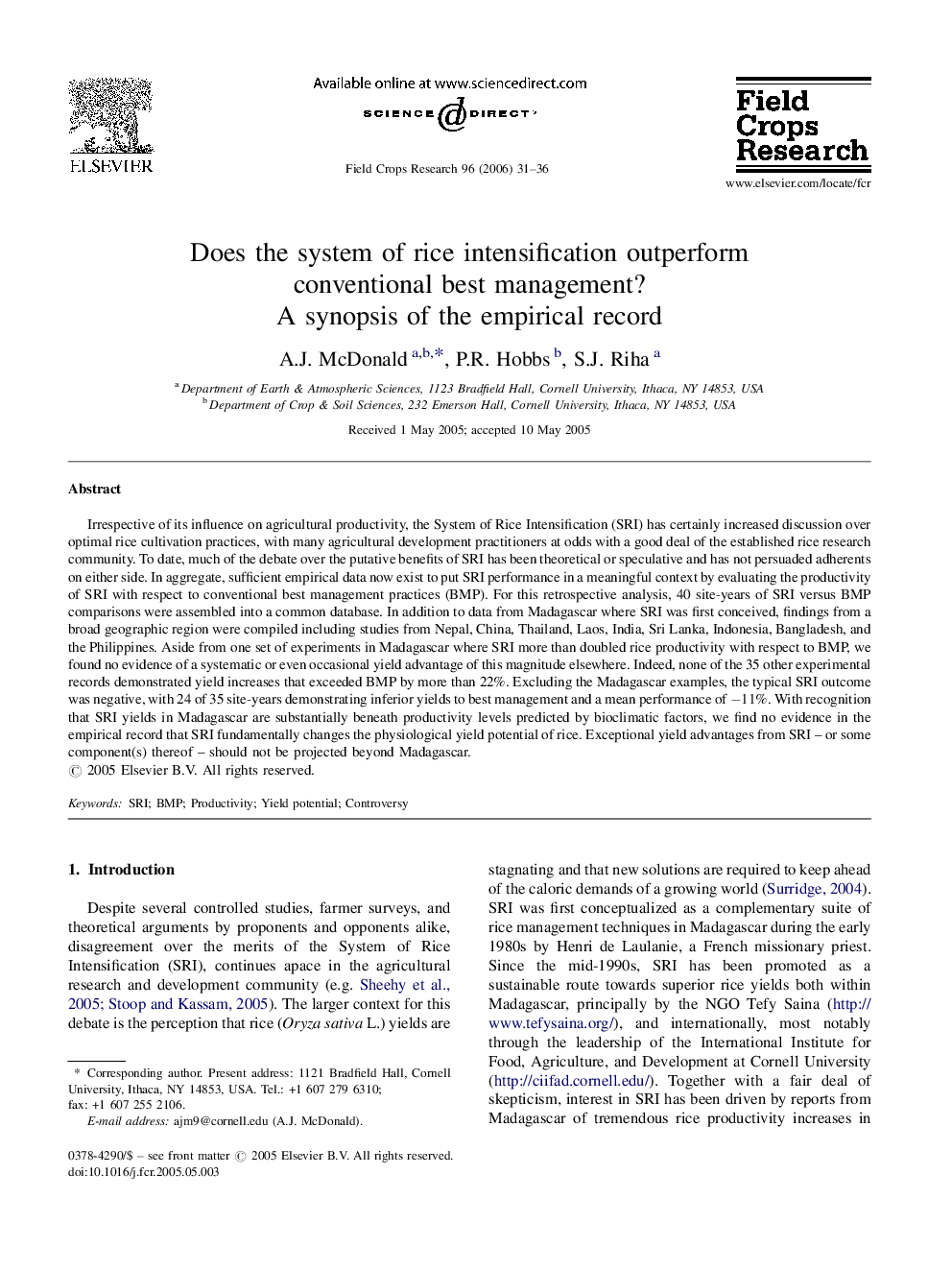| Article ID | Journal | Published Year | Pages | File Type |
|---|---|---|---|---|
| 4511887 | Field Crops Research | 2006 | 6 Pages |
Irrespective of its influence on agricultural productivity, the System of Rice Intensification (SRI) has certainly increased discussion over optimal rice cultivation practices, with many agricultural development practitioners at odds with a good deal of the established rice research community. To date, much of the debate over the putative benefits of SRI has been theoretical or speculative and has not persuaded adherents on either side. In aggregate, sufficient empirical data now exist to put SRI performance in a meaningful context by evaluating the productivity of SRI with respect to conventional best management practices (BMP). For this retrospective analysis, 40 site-years of SRI versus BMP comparisons were assembled into a common database. In addition to data from Madagascar where SRI was first conceived, findings from a broad geographic region were compiled including studies from Nepal, China, Thailand, Laos, India, Sri Lanka, Indonesia, Bangladesh, and the Philippines. Aside from one set of experiments in Madagascar where SRI more than doubled rice productivity with respect to BMP, we found no evidence of a systematic or even occasional yield advantage of this magnitude elsewhere. Indeed, none of the 35 other experimental records demonstrated yield increases that exceeded BMP by more than 22%. Excluding the Madagascar examples, the typical SRI outcome was negative, with 24 of 35 site-years demonstrating inferior yields to best management and a mean performance of −11%. With recognition that SRI yields in Madagascar are substantially beneath productivity levels predicted by bioclimatic factors, we find no evidence in the empirical record that SRI fundamentally changes the physiological yield potential of rice. Exceptional yield advantages from SRI – or some component(s) thereof – should not be projected beyond Madagascar.
